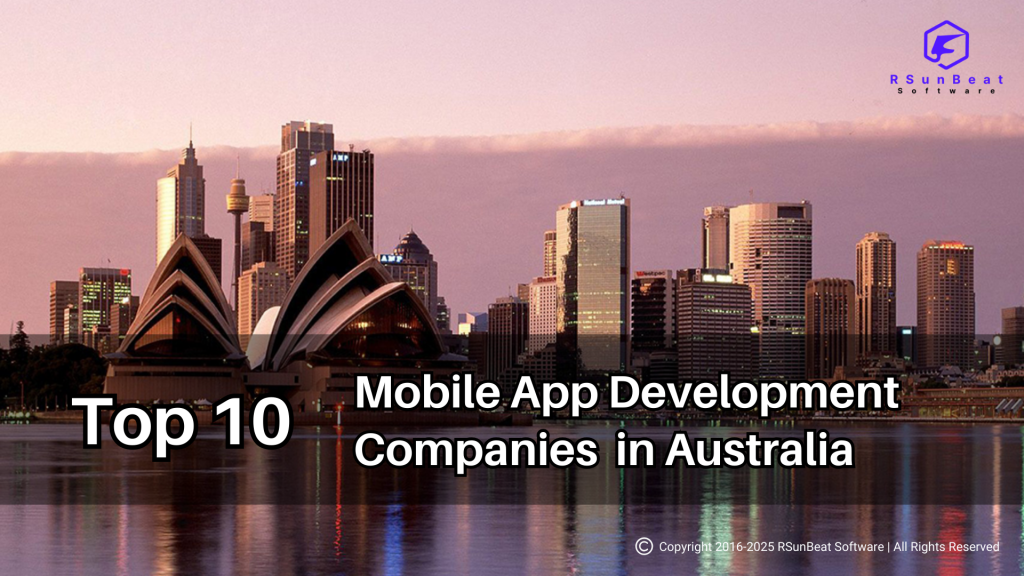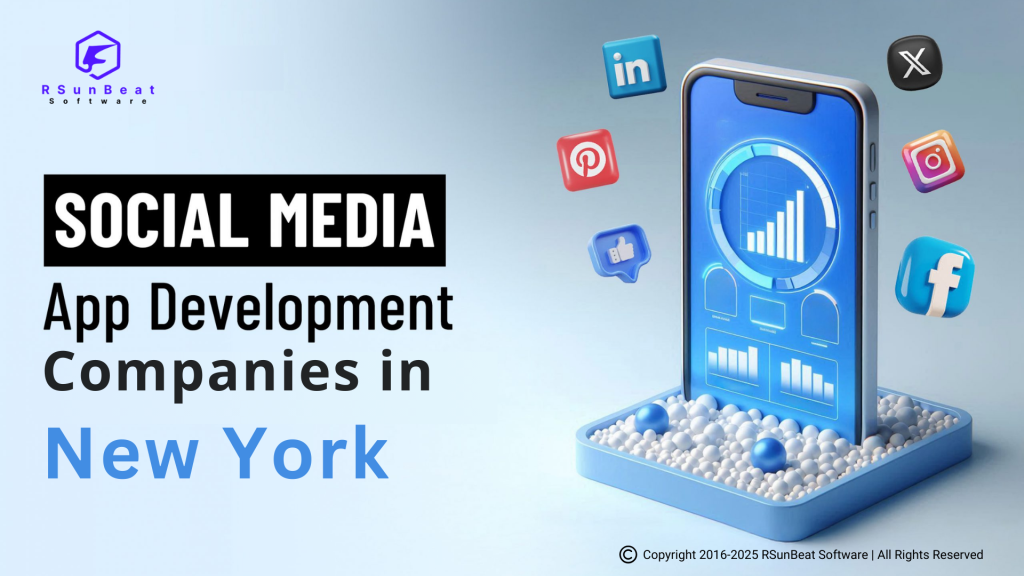
Restaurant Mobile App Development in 2025
The food and beverage (F&B) industry has always thrived on its ability to adapt to consumer demands. From the rise of fast food chains to the digital food delivery revolution, this sector has consistently embraced innovation. As we enter 2025, restaurant mobile app development is no longer just a trend—it’s a survival strategy. Customers expect convenience, personalization, and seamless digital experiences, and mobile apps are at the center of this transformation.
According to Statista, the global online food delivery market is projected to reach over $1.2 trillion by 2025. This growth is driven by digital-first consumers who prefer ordering through on-demand food app development platforms rather than making phone calls or visiting in person. For restaurants, cloud kitchens, and food tech startups, investing in a mobile app is not optional anymore—it’s the key to unlocking higher sales, customer loyalty, and long-term growth.
In this detailed guide, we’ll explore why 2025 is a turning point for restaurant mobile app development, the challenges restaurants face, the latest technology trends, hiring strategies, and proven marketing techniques to ensure your app becomes a powerful revenue driver.
Why 2025 is a Turning Point for Restaurant Mobile App Development
Several key factors make 2025 a pivotal year for restaurant mobile app development:
1. Consumer Expectations Have Shifted Permanently
COVID-19 accelerated digital adoption. Consumers got used to mobile ordering, digital payments, and contactless delivery. Even after the pandemic, these habits stuck, with 70% of diners preferring restaurants that offer app-based ordering.
2. Growth of Cloud Kitchens & Delivery-First Models
The rise of cloud kitchen app solutions has transformed the industry. With no dine-in operations, these kitchens rely solely on apps and digital platforms to generate revenue.
3. Competition is Fierce
F&B brands now compete not only with local restaurants but also with giants like Uber Eats, DoorDash, and Zomato. To survive, businesses must offer a custom F&B app development company experience that differentiates them from aggregators.
4. Emerging Technologies are Mainstream
Technologies like AI-powered food app development, augmented reality (AR) menu apps, and IoT app integration for F&B are now affordable and accessible, making them a standard expectation for customers.
5. Investor Interest in Food Tech Startups
Venture capitalists and investors are actively funding food tech startup app development companies. For startups, launching a mobile app is a direct path to securing funding and scaling operations.
Challenges in the F&B Industry & How Mobile Apps Solve Them
1. Rising Operational Costs
-
Problem: High labor, rent, and logistics costs reduce margins.
-
Solution: Apps automate reservations, online ordering, payments, and even kitchen operations with IoT app integration for F&B, reducing manual dependency.
2. Customer Retention & Loyalty
-
Problem: Retaining customers is harder than acquiring them.
-
Solution: iOS developer for restaurant loyalty app can create gamified loyalty programs, personalized offers, and subscription models to drive repeat sales.
3. Delivery Inefficiencies
-
Problem: Unoptimized delivery routes increase costs and delays.
-
Solution: AI-powered food app development integrates smart route optimization and predictive delivery times.
4. Lack of Transparency in Food Supply Chains
-
Problem: Customers demand ethical sourcing and transparency.
-
Solution: Blockchain development for food supply chain ensures trust and traceability, helping restaurants prove the quality and origin of ingredients.
Key Trends Shaping F&B Mobile Apps in 2025
AI-Powered Food App Development
AI personalizes customer experiences by suggesting dishes based on past orders, dietary preferences, or time of day. It also helps in demand forecasting, reducing food wastage.
Augmented Reality (AR) Menus
AR menu apps allow customers to visualize their meals in 3D before ordering. This reduces hesitation, increases upselling, and enhances the dining experience.
IoT Integration
IoT app integration for F&B ensures real-time inventory updates, smart kitchen management, and automated reordering of supplies. IoT devices also track food delivery, ensuring freshness.
Blockchain in Food Supply Chain
From farm-to-table, blockchain provides complete transparency. Restaurants can assure customers of authenticity and compliance with food safety standards.
Cloud Kitchens & Subscription Apps
Apps for cloud kitchen app solutions and developer for subscription-based food app models allow restaurants to generate recurring revenue streams, improve loyalty, and reduce customer churn.
Hiring the Right Team: Freelancers, Agencies, or In-House?
Choosing the right development team is crucial for the success of your restaurant app. Here’s how to decide:
Freelancers
-
Best for small budgets or specific needs (e.g., freelance food app UI/UX designer).
-
Flexible but can lack consistency.
Agencies
-
Partnering with a food and beverage app design agency provides end-to-end services from design to deployment.
-
Higher cost but ensures quality and scalability.
In-House Teams
-
Hiring hired developers for food industry software (React Native, iOS, Android specialists) gives complete control but comes with high recruitment and management costs.
Example Roles Needed:
-
React Native developer for food and beverage (cross-platform apps).
-
iOS developer for restaurant loyalty app (Apple-focused customers).
-
Android developer for food ordering app (mass-market users).
-
UI/UX designer for restaurant tech (intuitive user experience).
Table: Cost Comparison
| Development Type | Cost Range (2025) | Pros | Cons |
|---|---|---|---|
| Freelancers | $5,000–$20,000 | Affordable, flexible | Lack of accountability |
| Agencies | $20,000–$100,000+ | Quality, scalability | Expensive |
| In-House Team | $80,000+/year per developer | Full control, dedicated | High ongoing costs |
Marketing & Growth Strategies for Restaurant Apps
Even the best app won’t succeed without the right marketing strategy. Here’s how to grow:
Digital Marketing for F&B Startups
Hiring a restaurant social media marketing agency ensures consistent branding and targeted campaigns.
Content Marketing
Food brand content marketing—recipes, blogs, and videos—helps attract organic traffic and engage foodies.
Influencer Marketing
Influencer marketing for food industry leverages Instagram chefs, TikTok foodies, and YouTube reviewers to create buzz.
Local SEO & PPC
-
Optimize for local SEO for restaurants to appear in “best pizza near me” searches.
-
Run PPC campaigns for food delivery apps to capture high-intent users.
Retention Campaigns
-
Email marketing for F&B brands to promote offers.
-
Online reputation management for restaurants to build trust.
-
Voice search optimization for food queries to stay ahead.
ROI of Restaurant Mobile App Development
Mobile apps provide measurable returns on investment. For example:
Table: Cost vs ROI
| Investment | Features | ROI Impact |
|---|---|---|
| $50,000 App | AI ordering, AR menu, loyalty program | +20% sales, +40% repeat orders |
| $100,000 App | Full AI + IoT + Blockchain integration | +35% sales, +50% customer retention |
Case Studies
Case 1: Local Restaurant Chain with AR Menus
By adopting an AR menu app, a regional restaurant chain increased upselling by 18% and customer satisfaction by 30%.
Case 2: Cloud Kitchen Startup
A startup invested in on-demand food app development and scaled from one kitchen to 50 within two years, attracting investors due to its tech-driven model.
Future of Restaurant Tech Beyond 2025
-
AI-driven predictive ordering for hyper-personalized experiences.
-
Voice-based ordering via Alexa, Google Assistant, and Siri.
-
VR dining experiences for immersive remote dining.
-
Sustainable apps to track carbon footprint and promote eco-friendly dining.
Conclusion
Restaurant mobile apps are no longer optional—they’re essential for success in 2025 and beyond. With technologies like AI, AR, IoT, blockchain, and subscription models shaping the industry, businesses that act now will gain a competitive edge.
At RSunBeat Software, we specialize in food delivery app development services, custom F&B app development, and cloud kitchen app solutions that boost sales, enhance loyalty, and future-proof your restaurant.

Connect with RSunBeat Software today.
Testimonials ~
What Our Clients
Are Saying
Your trust drives our passion. Here’s how we’ve helped businesses like yours thrive with tailored solutions and unmatched support.

Hussein Termos
CEO
“RSunBeat Software is a top-tier web development company for the real estate industry. They delivered a user-friendly, customized platform that met our needs perfectly. Their innovative solutions, on-time delivery, and excellent support made the process seamless. Highly recommended for exceptional development services!”

James Carten
Founder & CEO
“Before working with RSunBeat Software, our real estate business faced issues with unreliable mobile apps, poor user experiences, and missed deadlines. RSunBeat delivered a seamless, high-performing app with excellent functionality, intuitive design, and timely execution, transforming our operations. Their expertise and dedication make them a trusted partner.”

Darla Shewmaker
VP of Marketing
“RSunBeat Software developed a great, user-friendly mobile app that exceeded our expectations. The team was extremely professional, kept us updated throughout the process and completed the work on time. Their expertise and dedication made the whole project seamless. We highly recommend RSunBeat for their great work and reliability!”

Nicholas Toh
Project Manager
“RSunBeat Software delivered an amazing web and app development experience. Their team was highly professional, detail-oriented, and dedicated to bringing our vision to life. The final product was seamless, user-friendly, and exceeded our expectations. We highly recommend them for top-notch development services!”
Our Technology Experts
Are Change Catalysts
Mail to Our Sales Department
info@rsunbeatsoftware.com
Our Skype Id
Rsunbeat Software


